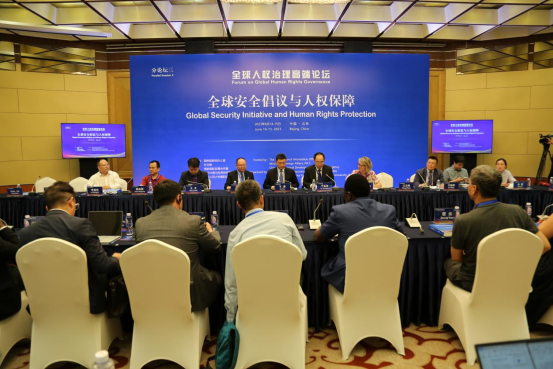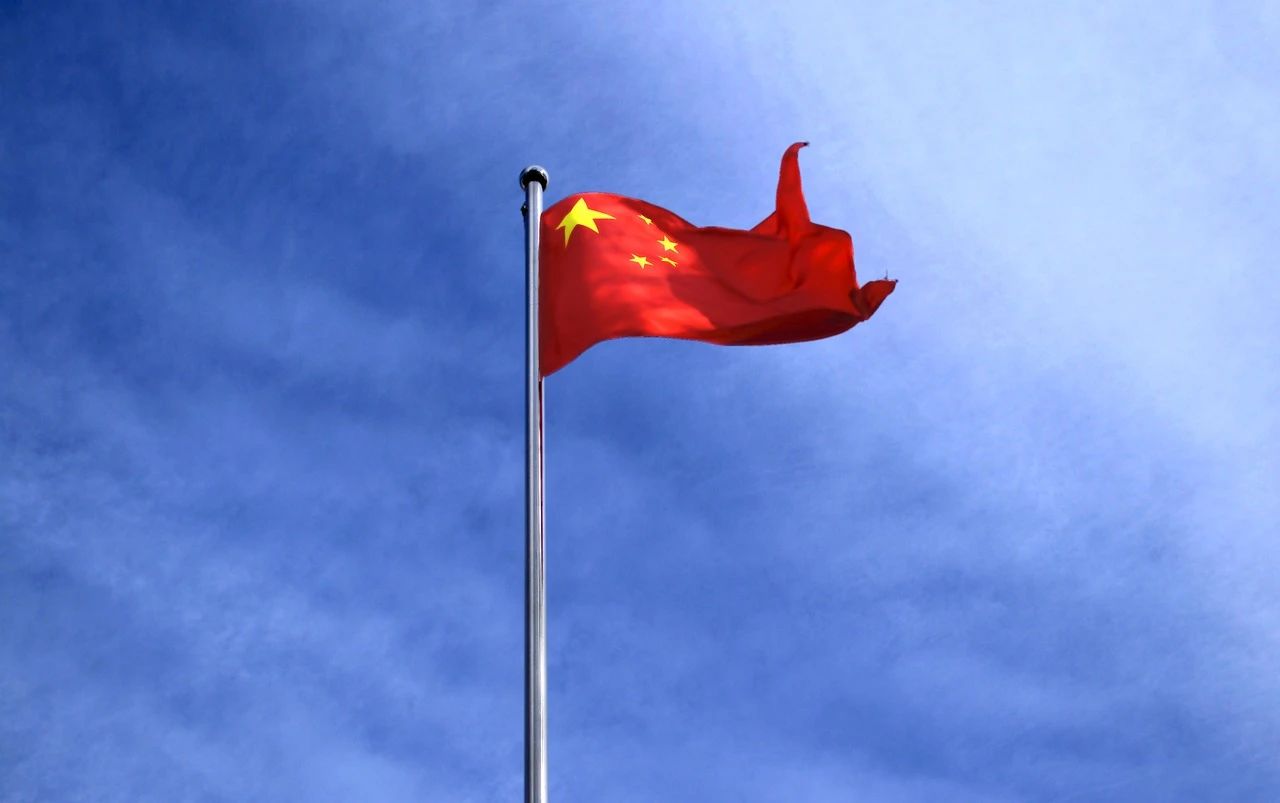作者丁刚系《人民日报》高级记者、中国人民大学重阳金融研究院高级研究员,本文系丁刚在参加完6月14日全球人权治理高端论坛“全球安全倡议与人权保障”分论坛研讨后的感想,中文版授权人大重阳发布,英文版刊于6月14日《环球时报》英文版。
中国的巨变从根基上动摇了西方在人权讲坛上的地位。中国的发展也成为中国人走上讲坛,和他们谈谈人权问题的底气。
本文字数约2500字,阅读需要4分钟。

“全球安全倡议与人权保障”分论坛现场
6月14日,我在北京参加了全球人权治理高端论坛。在聆听来自中外数百嘉宾讨论人权问题时,我一直在想为什么中国人现在会有谈论人权的底气。
长期以来,西方国家在谈论中国时总是要讲点人权问题,甚至借口人权,对中国采取了极其恶劣的制裁措施,为的是维护他们所谓的人权标准,就好像他们是全球人权问题的裁判、法官和导师。
谁给了他们这样的权力?
这和西方在过去几个世纪的扩张是分不开的。西方的扩张不仅显示在资本和宗教方面,也在思想方面。美国作家Mark Hertsgaard在他的《鹰的影子:为什么美国让世界着迷和愤怒》一书中写道:“现代美利坚帝国殖民的是思想,而不是领土”。
其结果是,西方利用自己掌握的话语权将自己塑造成了人权讲坛上的霸主。仿佛我们这些被殖民的人天生就该听他们的话,听从他们的安排。
中国的巨变从根基上动摇了西方在人权讲坛上的地位。中国的发展也成为中国人走上讲坛,和他们谈谈人权问题的底气。
在会议上,我在和一些中外学者聊天时提到了云南的铁路历史,因为我刚刚从那里旅行回来。
在云南的蒙自市郊区,有一个由法国人在百年前建造的火车站,叫碧色寨。斑驳陆离的杏黄色墙面给人一种难以言喻的历史沧桑感。
蒙自是清末民初云南省最大的对外贸易港口,建有云南第一个海关。其西南方向约40公里是以锡矿闻名于世的个旧。
19世纪末,法国人来了。
1885年,法国通过中法战争与软弱不堪的清政府签订条约,获得了对越南的“保护权”的在中国西南各省从事贸易、修建铁路的权利。
1903年,法国人开始修建滇越铁路。这条铁路的云南段穿越了许多高山峡谷,每一段都渗透着中国劳工的血汗。
1900年至1938年间,法国人通过这条铁路运输了234,242吨大锡。根据中国学者的研究,从1915年到1920年,法国铁路公司云南段平均每年盈利100万法郎,从1920年到1930年增加到平均每年盈利600多万法郎。
云南人民得到了什么?是更加贫穷和落后。殖民者从未给被殖民者带来任何人权。
我们并不否认西方最终在人权方面取得的进步。但在他们良心发现之前,这些财富早已转化成了他们成为发达国家的动力,并至今仍在维系着他们的富足生活。他们是在不再愁吃、愁穿,晃动着高雅的身躯来和我们谈论人权的。
西方今天的人权进步与当年对殖民地人民的残酷剥削和掠夺不是两段忽不相连的历史。没有血腥的掠夺和战争,会有今天现代西方的人权理论吗?
如今,我们在探讨现代人权理论时,不能不想一下西方当年为什么要在殖民地修铁路。对比一下当年法国人修建的铁路和今天云南修建的铁路,就会明白“初心”的重要性。
西方殖民者在殖民地建铁路的初衷与今天中国铁路的修建有根本的不同。正是有了和平发展的初心,中国取得了如此巨大的进步,其中也包括铁路与人权的发展,而且二者是相互促进的。这些都是西方人权理论中所没有的。
回顾历史、展望未来,谁的经验更有价值呢?
我的有关云南铁路的故事还没有讲完。今天的云南已经成为中国的铁路大省,一条条铁路公路把云南与全中国,与世界联系在一起,为云南百姓享受更好的发展权和人权创造了条件。
我建议外国嘉宾有机会坐高铁去那里看看,或者下一次干脆把会场挪到蒙自。在碧色寨体会了法国人修建的旧铁路的历史原味之后,再乘坐中老高铁去万象体验一下。相信他们一定会理解,为什么现在需要聆听中国人讲述的人权故事。
以下为英文版
Yunnan railroad proves Western colonizers never brought human rights to local people
By Ding Gang

On June 14, I attended a forum on global human rights governance in Beijing. While listening to guests from nearly 100 countries discussing human rights issues, I wondered what those Western human rights experts would think of such a meeting.
For a long time, Western countries have been accusing China of human rights abuses and have even imposed sanctions against China to uphold their standards. They claim to be the judges and instructors of global human rights issues.
Who has given them such power?
It is the expansion of the West over the last few centuries, not only in terms of capital and religion, but also in ideas. In his book The Eagle's Shadow: Why America Fascinates and Infuriates the World, the American author Mark Hertsgaard writes: "The modern American empire colonizes minds, not territory."
The result is that the West has used its own discourse to fashion itself as the hegemon of the human rights pulpit. It is as if we who have been colonized are born to listen to them and to do whatever they tell us to do.
China's dramatic changes have shaken the West's position at the top of the human rights pulpit. China's development is the backbone for Chinese people to talk about human rights.
At the conference, I mentioned the history of railroads in Yunnan when I chatted with some foreign guests.
In the city of Mengzi in Yunnan, there is still a train station, called Bisezhai, built by the French.
The mottled, apricot-yellow walls give a sense of unspeakable historical vicissitudes.
Mengzi was the largest port for foreign trade in Yunnan Province in the late Qing Dynasty and the first customs office in Yunnan Province. About 40 kilometers to the southwest is Gejiu, globally known for its tin mines.
At the end of the 19th century, the French came.
In 1885, France signed a treaty with the weakened Qing government through the Sino-French War, gaining the "right of protection" over Vietnam and the right to trade and build railroads in the southwestern provinces of China.
In 1903, the French began the construction of the Yunnan-Vietnam Railway. The Yunnan section of the railroad crossed many high mountains and valleys, and each section was permeated with the blood and sweat of Chinese laborers; as the folk song of the time says, "Blood stained the Nanxi River, and corpses paved the Yunnan-Vietnam railroad."
Between 1900 and 1938, 234,242 tons of tin were transported by the French through this railroad. According to Chinese scholars, from 1915 to 1920, the Yunnan section of the French Railway Company made an average annual profit of 1 million francs, which increased to an average yearly gain of more than 6 million francs from 1920 to 1930.
What did the people of Yunnan get? It was more poverty and backwardness. The colonizers never brought any human rights to the colonized.
We do not deny that they finally made progress in human rights, but the wealth was transformed into a driving force for their development long before they found their conscience.
It was progress based on the brutal exploitation and plunder of the colonized people. Nowadays, we cannot explore modern human rights theory without thinking about the original intention of the West. It can be said that without the bloody plunder and war, there would be no modern Western theory of human rights.
If you look at the railroad system in Yunnan today, you will understand the importance of "original intentions." Western colonists' original intentions fundamentally differ from the development of railroads in China today.
China is making progress in human rights based on peaceful development. This is also something that Western theories cannot explain.
If we look back on history, then whose experience is more valuable?
My story about Yunnan's railroads still needs to be finished. Today Yunnan has become a significant railroad province in China, creating the conditions for the people of Yunnan to enjoy better human rights. It is an important tool for them to achieve an enhanced and happy life.
I suggest that foreign guests take a chance to visit there by high-speed rail or move the forum to Mengzi. After tasting the history of the old French railroads in Bisezhai, they can take the China-Laos High-Speed Rail to Vientiane. I am sure they will understand why the Chinese are now most qualified to talk about human rights.
(欢迎关注人大重阳新浪微博:@人大重阳 ;微信公众号:rdcy2013)